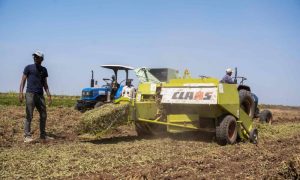ABUJA, Nigeria: The United Nations Office for the Coordination of Humanitarian Affairs (OCHA) is facing critical funding challenges to address severe food insecurity in Nigeria’s insurgency-affected northeast.
Despite launching a $306 million appeal in April, aimed at aiding 2.8 million people in Borno, Adamawa, and Yobe states during the lean season, funding remains insufficient. Nigeria and the UN have committed $22 million, but international donor reluctance has hindered progress.
OCHA’s Mohamed Malick Fall expressed concern over the shrinking humanitarian assistance to Nigeria, citing economic strains from COVID-19 on major donors and competition from other global crises like Gaza, Ukraine, and Sudan. The current best-case funding scenario is projected at $300 million, significantly lower than last year’s $500 million.
The situation is exacerbated by Nigeria’s soaring inflation and escalating food prices, compounding the risk of “catastrophic” consequences, including excess child mortality due to severe acute malnutrition. UNICEF data indicates over 120,000 children requiring treatment for malnutrition, surpassing annual targets.
Immediate intervention is crucial to mitigate the humanitarian crisis unfolding in Nigeria’s northeast, where ongoing conflict and economic hardship threaten millions with hunger and death.


























